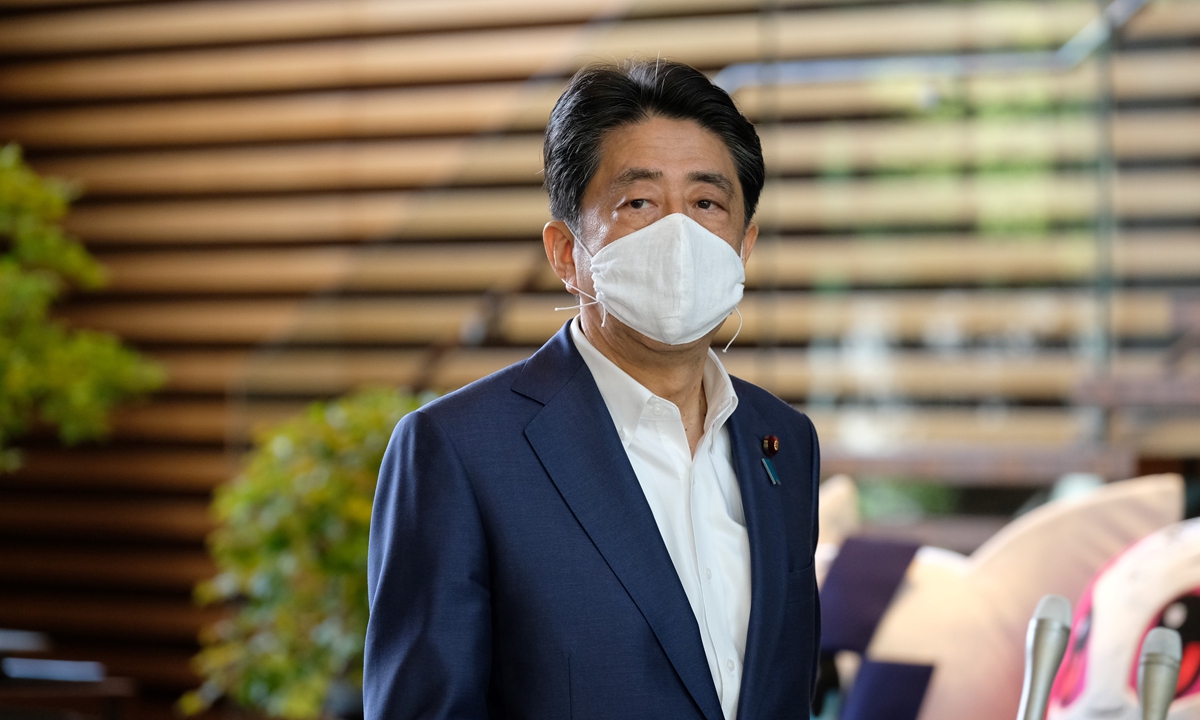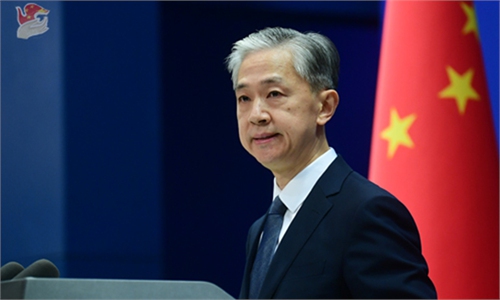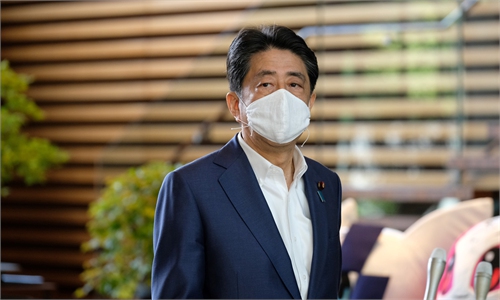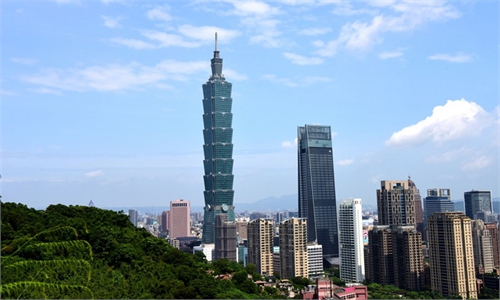
Shinzo Abe Photo: AFP
Former Japanese Prime Minister Shinzo Abe, who resigned last year amid a series of challenges and appears poised to reenter Japanese politics, made extremely erroneous remarks on the Taiwan question on Wednesday, suggesting that Japan would intervene if the Chinese mainland attacks the island of Taiwan.
While Abe, who is no longer in power, does not necessarily speak for the Japanese government, his malicious and irresponsible remarks do represent dangerous views among Japan's right-wing politicians over the Taiwan question, which poses serious risks and threats to regional stability. It remains to be seen whether the Japanese government will adopt this as an official stance, but such provocative remarks will certainly undermine the foundation for economic and trade cooperation not just between China and Japan but also among regional economies.
China and Japan have been actively participating in various multilateral trade pacts, including the Regional Comprehensive Economic Partnership (RCEP), which is set to take effect next month. Another major deal is a potential China-Japan-South Korea Free Trade Agreement, which has been under negotiation for several years.
While negotiations for the deal have progressed relatively slowly over the last few years due to the COVID-19 pandemic and other factors, many hold high hopes for strengthened economic ties among the three East Asian economies, especially in light of the RCEP. Observers generally believe that implementation of the RCEP could help resolve many obstacles holding up negotiations on the trilateral free trade agreement and help speed up the talks.
The deal has great potentials. The total GDP of the three countries amounts to more than $20 trillion, accounting for around 20 percent of the global GDP. And it is believed that once the deal is reached, the China-Japan-South Korea free trade area will become the world's third largest trade bloc after the North American Free Trade Agreement and the EU.
With highly complementary economic structures, China, Japan and South Korea share solid basis for economic and trade cooperation. Trade between the three countries rose to $622 billion in 2019, up 370 percent from $132 billion in 1999. Also, the three neighbors have close links in the upper, middle and lower reaches of supply chains in sectors such as semiconductors and electronics. In the face of challenges posed by the COVID-19, a free trade agreement among them will help promote supply chain cooperation and boost regional economic integration.
However, it is undeniable that cooperation has suffered from the ideological, geopolitical, and historical problems among the three countries. Japan also has tense diplomatic and trade ties with South Korea. Breakthroughs for the trilateral deal will require a stable political environment. But misguided and dangerous political rhetoric like the remarks from Abe will only create more tension and risks of starting unnecessary conflict and threatening regional economic cooperation.
Asia has become the most promising region in the world in terms of economic growth. Most regional economies have been focused on cooperation rather than conflict as some outside forces led by the US and their lackeys in the region are trying to instigate. For the sake of the development of the entire region, dangerous rhetoric from Japanese right-wing politicians like Abe must be rejected and condemned.
The Japanese economy also cannot afford to allow these politicians to play with fire. The percentage of people aged 65 or older in Japan rose to a record 28.6 percent, the highest ever, according to the latest national census by the country's internal affairs ministry. With its population rapidly ageing and economy stagnating, the country is actually in urgent need of strengthening economic cooperation with its neighbors to gain new momentum and quite possibly to survive. If these politicians are left unchecked, their blunder will cost Japan's economic future.



